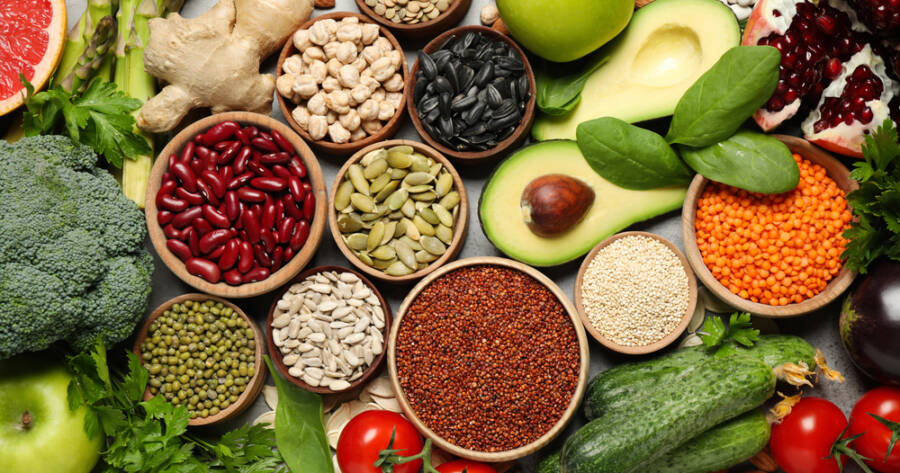Improving your nutrition doesn’t have to involve strict diets or overwhelming meal plans. In fact, some of the most effective ways to eat healthier come from small, consistent changes that are easy to stick to. Whether you’re looking to boost your energy, support your immune system, or simply feel better in your body, better nutrition starts with simple, sustainable habits. Understand easy ways to improve your nutrition without calorie counting, fad diets, or fancy superfoods.
1. Start with One Healthy Swap a Day
One of the simplest ways to begin eating better is by making small, smart swaps. Instead of overhauling your entire diet overnight, try replacing one less nutritious item with a healthier alternative each day.
Examples include:
- Swapping soda or juice for sparkling water with lemon
- Replacing white bread with whole-grain bread
- Choosing Greek yogurt over sugary varieties
- Snacking on fruit and nuts instead of chips or candy
Over time, these little changes can lead to big improvements in your overall diet.
2. Eat More Whole Foods
Whole foods—like fruits, vegetables, whole grains, lean proteins, and healthy fats—are naturally nutrient-rich and free from added sugars and preservatives. Try to fill most of your plate with whole foods and reduce highly processed items.
Easy ways to add more whole foods:
- Keep washed fruit or pre-cut veggies on hand for quick snacks
- Choose oatmeal over processed breakfast cereals
- Cook meals at home more often so you can control the ingredients
Whole foods fuel your body with essential vitamins, fiber, and antioxidants that support long-term health.
3. Don’t Skip Meals (Especially Breakfast)
Skipping meals can lead to energy crashes, cravings, and overeating later in the day. Start your day with a balanced breakfast that includes protein, healthy fat, and fiber—such as eggs with whole-grain toast and avocado, or a smoothie with greens and protein.
Eating regularly throughout the day helps maintain steady blood sugar levels and supports a more balanced mood and metabolism.
4. Watch Portion Sizes Without Measuring Everything
You don’t need to weigh every bite to eat well. Being mindful of portion sizes can go a long way toward improving your nutrition. Use visual cues to guide you:
- A palm-sized portion of protein
- A fist-sized serving of vegetables
- A cupped hand of whole grains or carbs
- A thumb-sized amount of healthy fats
This approach helps prevent overeating while still enjoying a variety of foods.
5. Stay Hydrated
Sometimes what feels like hunger is actually dehydration. Drinking enough water throughout the day helps your body function properly and supports digestion and metabolism.
Tips to drink more water:
- Start your day with a glass of water
- Keep a refillable bottle with you
- Add natural flavor like cucumber, mint, or berries
- Set reminders if you forget to sip
Aim for around 6–8 cups of water per day, depending on your activity level and environment.
6. Plan Ahead
Planning meals and snacks ahead of time makes healthy choices easier. When you’re tired or rushed, it’s tempting to grab fast food or processed snacks. But with a little planning, you can have nutritious meals ready to go.
Simple prep ideas:
- Batch cook grains, proteins, or soups on the weekend
- Chop vegetables ahead of time for quick meals
- Pack healthy snacks like nuts, fruit, or hummus and veggies
Planning reduces stress and helps you stay on track without making last-minute decisions.
7. Prioritize Protein with Every Meal
Including a source of protein in each meal helps you feel fuller for longer, supports muscle maintenance, and stabilizes blood sugar levels throughout the day. Protein doesn’t have to mean large servings of meat—there are plenty of nutritious options to suit every diet.
Easy ways to add more protein:
- Add eggs or nut butter to breakfast
- Include beans, lentils, or tofu in salads and stir-fries
- Snack on Greek yogurt, edamame, or cottage cheese
- Choose lean meats or fish for lunch and dinner
Balancing protein with fiber and healthy fats keeps meals satisfying and helps prevent mid-afternoon energy dips or late-night snacking.
8. Practice Mindful Eating
In a world of multitasking and distractions, it’s easy to eat without paying attention to what or how much you’re consuming. Mindful eating encourages slowing down, savoring each bite, and tuning in to your body’s hunger and fullness cues.
How to eat more mindfully:
- Avoid screens or work while eating
- Take smaller bites and chew slowly
- Notice textures, flavors, and aromas
- Stop eating when you feel comfortably satisfied, not stuffed
By focusing on the experience of eating, you’ll naturally make better food choices, enjoy meals more, and improve digestion—all without restrictive dieting.
Progress Over Perfection
Improving your nutrition doesn’t have to be all or nothing. By making small, consistent changes—like adding more whole foods, drinking more water, and prepping ahead—you’ll build habits that stick.
Remember, it’s not about being perfect, but about making better choices, more often.
